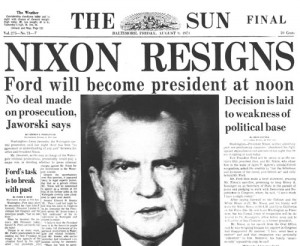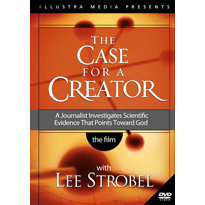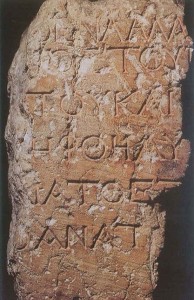Is Homosexuality Sinful (Part II)
Is Homosexuality sinful? This is Part II of a five part series that attempts to answer that question.
Objection: The New Testament doesn’t specifically refer to homosexuality, rather it addresses male prostitution and promiscuity. As far as Paul’s commentary on the issue, he also said that women are to remain silent and never assume authority over a man. Those notions are obviously antiquated and have no place in contemporary society, therefore his views on homosexuality should likewise be discarded.
Overruled: The New Testament does reference homosexuality specifically in Romans 1:27. While other passages elaborate on sexual perversion in more general terms, to imply that homosexuality isn’t included in those verses is to turn a deaf ear to the obvious verdict that God vocalizes throughout the Bible.
In addition, the Bible tasks men with being the spiritual leader in the home as well as the spiritual leaders in the church. But to say that that Bible commands women to be silent and that they are never to occupy positions of authority is incorrect. The Bible contains several examples of women who wielded significant authority and influence over men. Their role in the home and in the church is subordinate to the role of their husband, but both sexes are equal in Christ and considered qualified to occupy leadership positions.
Homosexuality is Specifically Referenced in the New Testament
Romans 1:27 specifically references men having sex with one another, which is homosexuality. While promiscuity and male prostitution could be categorized as, “shameless acts” and other translations differ in their specifically mentioning homosexuality as opposed to, “pervert” or, “effeminate,” the bottom line is that the degradation of man often shows up in the way he deviates from the healthy and holy sexual relationship God intended to exist between a husband and wife. Anything contrary to that is sin and that includes same sex relationships.
So the New Testament does specify homosexuality and it also lumps it in with any one of a number of perverse expressions of man’s inclination to rebel against God (see also 1 for 6:9; 1 Tim 1:10.)
Women as Leaders and Subordinates
As far as women never being allowed to have authority over a man, that is true but only in the context of a worship service and in the way a wife is to interact with her husband.
After the Fall, God established a hierarchy as far as the relationship that would exist between a man and his wife:
To the woman he said, “I will greatly increase your pains in childbearing; with pain you will give birth to children. Your desire will be for your husband, and he will rule over you.” (Gen 3:16)
You see that reiterated in Ephesians 5:22:
Wives, submit to your husbands as to the Lord. (Eph 5:22)
By no means does this give the husband to take advantage of his wife in any way in that he is to love his wife as Christ loved the church:
Husbands, love your wives, just as Christ loved the church and gave himself up for her (Eph 5:25 [see also verse 28, 33])
Bear in mind that Christ loved the church by dying for her, so in order for a husband to be consistent with the Biblical model for the way in which he is to love his bride, he needs to subordinate himself to her welfare to the extent that he would be willing to lay down his life for her. You see Paul elaborate on that imagery throughout this particular text.
But while a wife is commanded to submit to a loving husband who is completely devoted to her, that doesn’t mean women cannot occupy positions of authority and influence over men.
Deborah is a great example of that as she was a judge over the nation of Israel as seen in Judges 4. Huldah, the prophetess in 2 Kings 22:14 as well as Philip’s daughters in Acts 21:8-9 and Phoebe, the deaconess in Romans 16:1 are all examples of women who wielded authority and power.
Deborah was married as was Huldah and Phoebe. While they occupied roles characterized by civic and judicial authority, they were still subordinate to their husbands in their respective homes and would’ve yielded to the authority of the spiritual leaders in their lives when it came to worship and discipleship.
So, women do have the capacity to lead and to teach. But, in church it is different. Men, and only men, are to fill the role of pastor and teacher. The foundation for that hierarchy was established first in Genesis, not just in the context of the Fall of Man, but also in the order that male and female were created.
Men and Women as Equals
It should be noted that when God said that it was, “not good” that the man be alone, He was not implying that what He had created was less than perfect, as much as He was looking to the perfection that would be accomplished once man and woman were created and until then, it was, “not good.”
The woman was created from the man and created to help the man.
For man did not come from woman, but woman from man; neither was man created for woman, but woman for man. (1 Cor 11:8-9)
That doesn’t speak to woman’s insufficiency as much as it points to man’s inadequacy. Mankind, as an institution, cannot flourish without both sexes working side by side. From that perspective, both genders are equal, and that can be seen in Galatians:
There is neither Jew nor Greek, slave nor free, male nor female, for you are all one in Christ Jesus. (Gal 3:28)
Paul elaborates on that further in 1 Corinthians 11:11-12:
In the Lord, however, woman is not independent of man, nor is man independent of woman. For as woman came from man, so also man is born of woman. But everything comes from God. (1 Cor 11:11-12)
The Distinctive Roles of Men and Women
But while they are the same in spiritual essence and worth, they are nevertheless assigned different roles in worship and in the home. This is seen throughout Scripture:
women should remain silent in the churches. They are not allowed to speak, but must be in submission, as the Law says. (1 Cor 14:34)
A woman should learn in quietness and full submission. 12 I do not permit a woman to teach or to have authority over a man; she must be silent. (1 Timothy 2:11-12 [1 Tim 2 pertains to orderly worship. Also, 1 Timothy 3 lists the qualifications of a church leader and there is no reference to women at all])
Paul’s commentary on the role of women can be categorized under two headings: Distractions and Discrepancies. In verses like First Corinthians 14:34 and 1 Timothy 2:1-12, you see the issue of, “distraction” being addressed in that people were talking over themselves, specifically women speaking out of turn, which was leading to an improper climate for a worship service. Reminding them of their submissive role before God and their husbands was an appropriate admonishment in that it went beyond simply asking them to be courteous, rather it framed what their conduct needed to be according to the Absolutes articulated in Scripture.
The, “discrepancy” dynamic is covered in the way Paul states how it’s not appropriate for a woman to have authority over a man. Again, in every instance where Paul makes this statement, the context is orderly worship. Men are to be the spiritual leaders in their home and in the church. When a woman proves herself to be more qualified to teach and lead in the sanctuary, while her spiritual maturity is to be applauded, it is ultimately an indictment against those men she would hypothetically instruct in that they should be capable of teaching her rather than the other way around.
Godly women who have the gift of teaching and leadership are extraordinary people that God uses in a variety of ways – Business women, artists, Conference Leaders, Principals and the list goes on and on. In church, they can be seen as teachers and lay leaders, but not in those instances where they are leading or teaching men.
Those who process the Biblical way in which authoritative roles are designated in Scripture with a feeling of either resignation or resistance are forgetting verses like Psalm 37:4 where it’s made clear that the amount of fulfillment you experience in your life is in direct proportion to the degree of obedience you deploy in response to God’s Instructions.
As a woman you are not held accountable for the spiritual health of your husband, nor are you tasked with having to teach other men. If you insist on taking that responsibility upon yourself, despite the fact that God has made it clear that it isn’t your job, your efforts will fall short of God’s Ideal if for no other reason in that you’re standing in the place that has been reserved by God for someone else.
Moreover, the sort of leadership and submission that is being commanded in Scripture is not the assignment of the qualified over the unqualified. Rather, it is an infrastructure that is established first for the sake of promoting the proper regard for God and then to foster the kind of Divinely empowered productivity that can only occur when each person is subordinating themselves to the authority that has been placed over them, much like a team of all stars has a captain who they follow as well as a coach that they all answer to.
So, while men and women are equal in Christ, they do have different roles and that is a good thing. By attempting to discredit the way in which Scripture has assigned authority in the home and in the church by insinuating that women are prohibited from occupying any position of authority is incorrect and indicative of a very limited knowledge of God’s Word.
God’s commands are freeing in that they open up the path that leads to success. To perceive them as limiting or inaccurate is to buy into a lie that ultimately leads to a world of unrealized expectations that, left unchecked, will culminate in a very dark and spiritually destitute demise.
Therefore, as far as those who would insist that the Biblical template for the way in which women are to fulfill their role as wives and leaders is obsolete, thus making the New Testament commentary on homosexuality something that can be ignored in a similar fashion – they are wrong in both instances and are denying themselves the advantages that go along with being receptive and obedient to the Word of God.
To proceed to Part III click here…



























You must be logged in to post a comment.